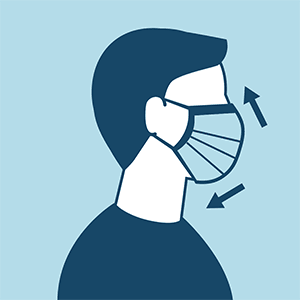The Kansas Department of Health and Environment reports rumors and scams can easily circulate in times of crisis, and that is currently happening with the COVID-19 pandemic. Krista Engel, fraud manager with Program Integrity at KDHE, said that fraud schemes are already impacting members of Medicare and Medicaid across the United States. These include:
• Diagnosis Testing: Fake COVID-19 testing kits are being offered door-to-door and online.
• Treatment: Unproven cures, vaccines and advice are being offered as treatments for COVID-19. These are particularly dangerous because they have the potential to do more harm than good.
• Supplies: Scammers are creating fake businesses, websites, social media accounts and email addresses claiming to sell medical supplies currently in high demand, such as surgical masks. Fraudsters will pocket the money and never provide the supplies.
• Health-care Providers: Watch out for calls or emails pretending to be doctors or health-care facilities that have treated a friend or relative for COVID-19. If there’s a demand for payment, that’s a scam.
• Charity: Donation solicitations from unknown individuals, groups and organizations can be common during a crisis. If you haven’t had contact with them in the past, that’s a red flag.
• Phishing: Scammers may pose as national, global, or even state and local health authorities. They pretend to be from the World Health Organization (WHO) and the Centers for Disease Control and Prevention (CDC), for example, and send emails designed to trick people into downloading malware or providing personal identifying and financial information.
• Mobile Apps: Mobile apps are being offered that claim to track the spread of COVID-19; however, they insert malware that will compromise users’ devices and personal information.
• Investments: Watch out for claims that products or services from publicly traded companies can prevent, detect or cure COVID-19 – and that the stock of these companies will dramatically increase in value as a result. Often these promotions look like “research reports,” make predictions of a specific “target price,” and relate to microcap stocks, or low-priced stocks issued by the smallest of companies with limited publicly available information.
• Overinflated Prices: Be aware that sellers may try to unlawfully use the COVID-19 pandemic to unreasonably inflate prices.
• Insurance, Workers’ Compensation & Medicaid Fraud: Businesses and government agencies are not immune to scams. Be vigilant for offers to help apply for government assistance payments – either for your business or your employees. This is often an attempt to obtain their personal information or to extract a bogus fee for “help” filing for the relief.
• Economic Impact Payment (Stimulus Check): Scammers pretend to be government officials offering fake economic impact payments (stimulus checks) in order to obtain personal identifying information, including social security and bank account numbers.
Minimize your risk
The best way to prevent COVID-19 is to avoid being exposed to the virus. Take the following steps to minimize your risk:
• Stay home as much as possible.
• Wash hands frequently with soap and water for at least 20 seconds. If soap and water is not available, use hand sanitizer with at least 60% alcohol.
• Avoid touching your eyes, nose and mouth.
• Distance yourself from others when in public, especially if you are a senior or have a medical condition that puts you in a high-risk category.
• Cover your mouth and nose with a cloth mask when in public.
• Cover coughs and sneezes with an elbow or tissue. Throw the used tissue away and immediately wash your hands.
• Clean and disinfect frequently touched surfaces daily – including phones, keyboards, doorknobs, handles and light switches.
For more details and to view this information in other languages online, visit https://www.cdc.gov/coronavirus/2019-ncov/prevent-getting-sick/prevention.html.




